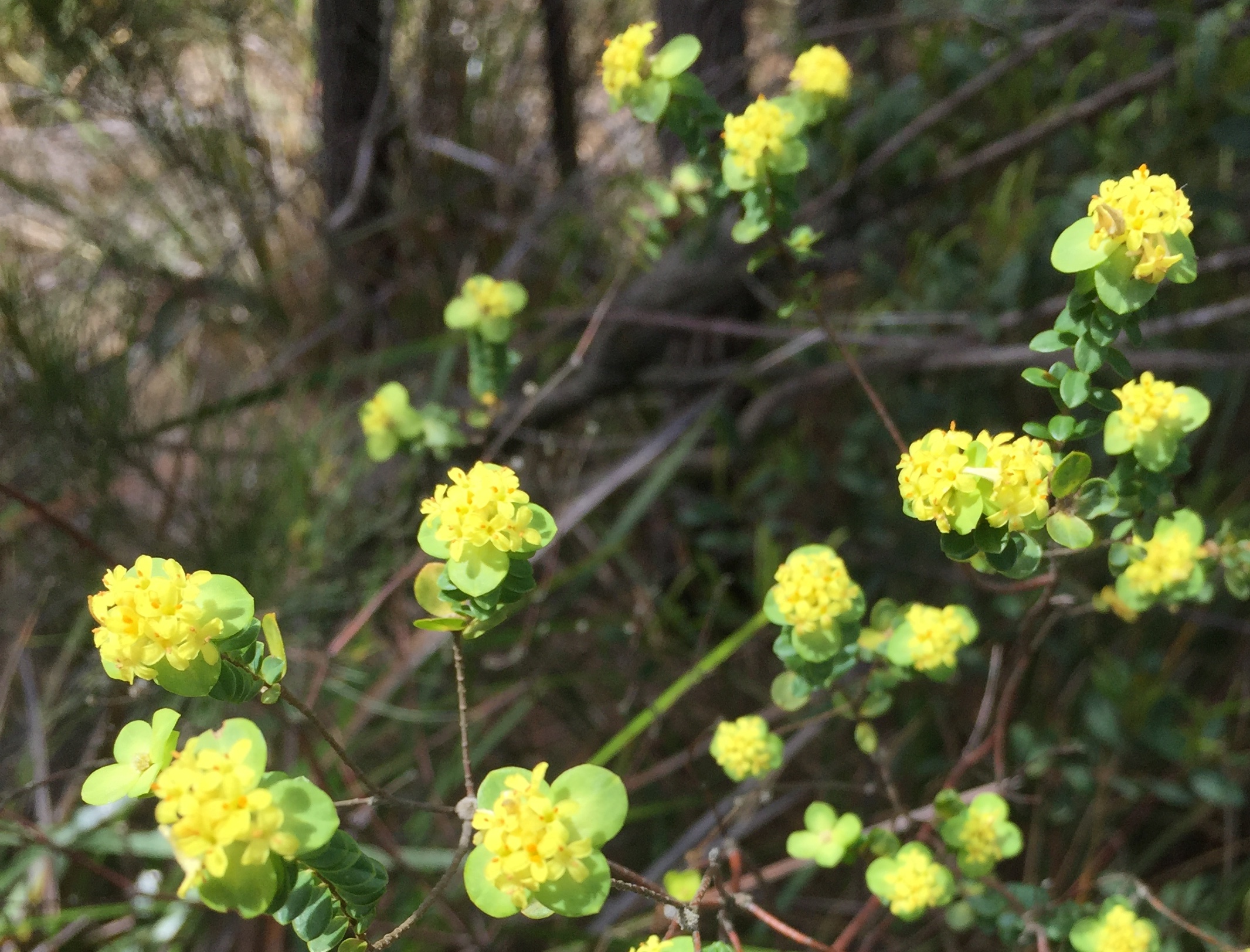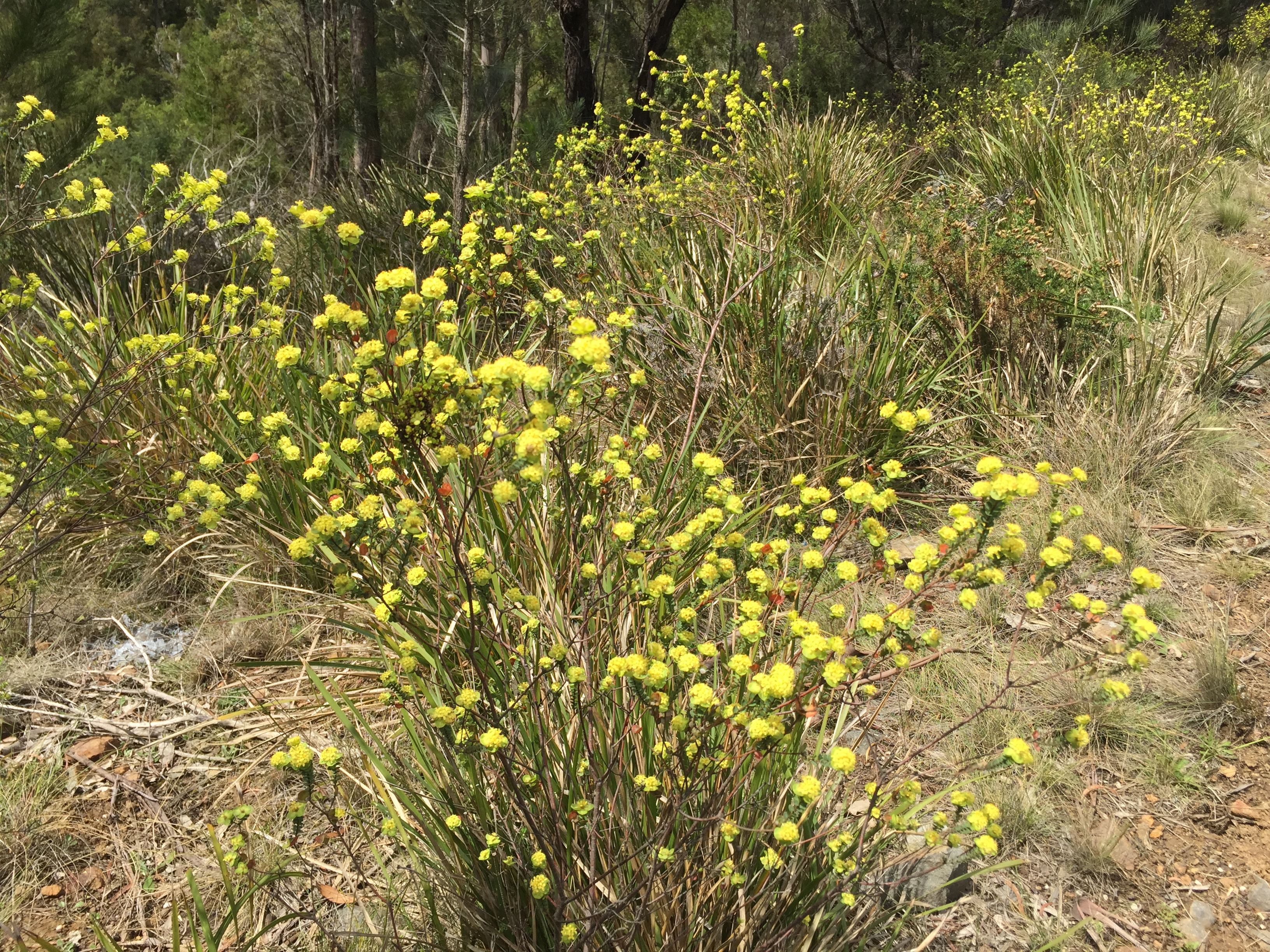Scientific Name: Pimelea flava subsp. flava
Common Name: yellow riceflower
Family Classification (Clade): Eudicots
Family: Thymelaeaceae
Form Description: Shrub with slender erect branches arising in whorls below the previous year’s flowers.
Height (m): 0.5 – 1.5
Flowers: Heads bright buttercup yellow of many tubular flowers surrounded by four wide green bracts. Male with wider spreading lobes, 2 orange stamens.
Fruit: Cluster of hairy one-seeded nuts
Municipality
Plant Communities
Habitat Notes
Abundant but local near east and north coasts.
Site Tolerance
Dry, Moist
Soil Tolerance
Fertile, Loam, Nutrient-poor, Sandy, Well-drained
General Notes
Likes moderately well-drained soils and a semi-shaded site. Resistant to Phytophthora cinnamomi.
Propagation Calendar
-
Flowering Month
Jan Feb Mar Apr May Jun Jul Aug Sep Oct Nov Dec -
Seed Collecting Month
Jan Feb Mar Apr May Jun Jul Aug Sep Oct Nov Dec -
Sowing Month
Jan Feb Mar Apr May Jun Jul Aug Sep Oct Nov Dec -
Cutting Month
Jan Feb Mar Apr May Jun Jul Aug Sep Oct Nov Dec
Propagation Method
Seed Information
Seed Collection
Very difficult to grow from seed. Male and female flowers on different plants. Seed releases very quickly once ripe. Slightly immature fruit may be harvested and allowed to mature in a warm position. Rub over wire screens to remove outer coverings.
Seed Treatment Method
Smoke Smoke treatment improves germination in some species. Smokey products, e.g. smokey vermiculite, can be purchased and applied to the sown seed, or sown seeds can be treated directly with smoke from a source such as a drum with a fire and hose.
Seed Treatment Notes
Some success has been reported with the burning of small twigs and leaf litter on top of the seed, although results are very erratic. The seed may respond to a combination of heat and smoke treatment.
Cutting & Division Information
Usually grown from cuttings which are slow to strike. Care should be taken not to strip back the young bark.

